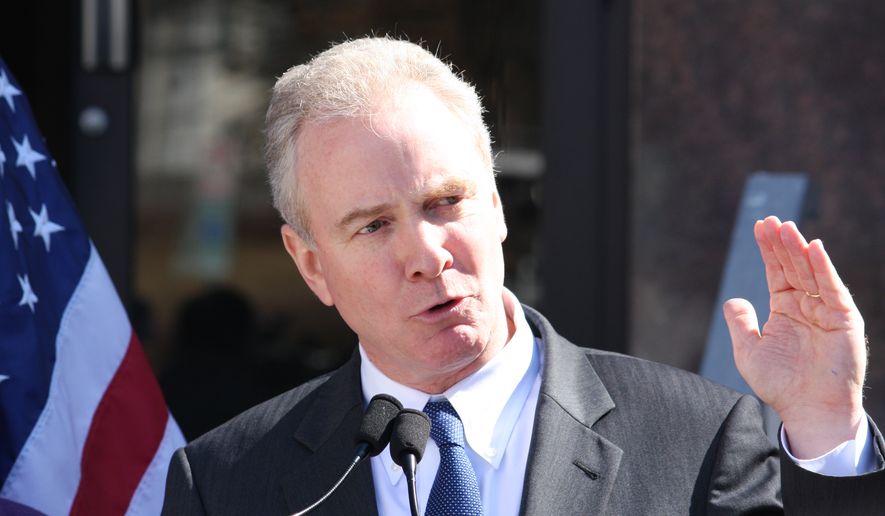A federal appeals court shot down Democrats’ effort to try to force groups that engage in political spending to disclose all of their donors, issuing a ruling Thursday that upheld the right to anonymous speech.
The three-judge panel of the U.S. Circuit Court of Appeals for the District of Columbia also warned, however, that free speech and disclosure are “on an ineluctable collision course,” and suggested the Supreme Court will eventually have to weigh in and declare one side triumphant.
The latest ruling comes six years to the day after the Supreme Court issued its Citizens United decision that found corporations had a right to engage in political advertising, overturning previous precedent and sparking a surge of money going to campaign speech.
Democrats, led by Rep. Chris Van Hollen, Maryland Democrat, decried the money, saying campaigns were being swamped by outside interest groups, formed as nonprofits and funded by secretive donors. He had sued to try to force the Federal Election Commission to demand those outside groups disclose all of their donors.
But a three-judge panel, ruling unanimously, said forcing that kind of disclosure would not hurt the big corporations Mr. Van Hollen is trying to reach, but rather the average American.
“For instance, an American Cancer Society donor who supports cancer research but not ACS’s political communications must decide whether a cancer cure or her associational rights are more important to her,” wrote Judge Janice Rogers Brown in her opinion for the court. “Cancer research isn’t a political issue, but disclosure rules of this sort would undeniably transform it into one.”
Campaign finance laws have been controversial for decades, as Congress pushes to try to impose more limits and disclosure rules, and the courts have pushed back, carving out some areas where judges say free speech trumps other concerns.
Caught in the crossfire is the FEC, which is supposed to write the rules for carrying out Congress’ orders on campaign finance.
Trying to strike a middle ground on interest groups’ spending, the FEC adopted a rule that required corporations and labor unions to disclose donors who gave $1,000 or more if the contributions were “made for the purpose of furthering electioneering communication.”
Mr. Van Hollen said the FEC rule violated the 2002 campaign finance law, saying Congress intended for full disclosure to be the rule for all election communications.
The judges, though, said the campaign law envisioned some exceptions to disclosure, and said the FEC fairly — if not altogether clearly — explained how it was trying to strike a balance.
Judge Brown said wealthy corporations or rich individuals, who were likely the targets of Congress’ laws, would have “little difficulty” in complying with disclosure rules or finding loopholes to get around them. Instead it would be small groups or individuals who would suffer.
The court also said a day of reckoning is eventually coming for the conflict between speech and disclosure.
“Both an individual’s right to speak anonymously and the public’s interest in contribution disclosures are now firmly entrenched in the Supreme Court’s First Amendment jurisprudence. And yet they are also fiercely antagonistic,” Judge Brown wrote.
• Stephen Dinan can be reached at sdinan@washingtontimes.com.




Please read our comment policy before commenting.